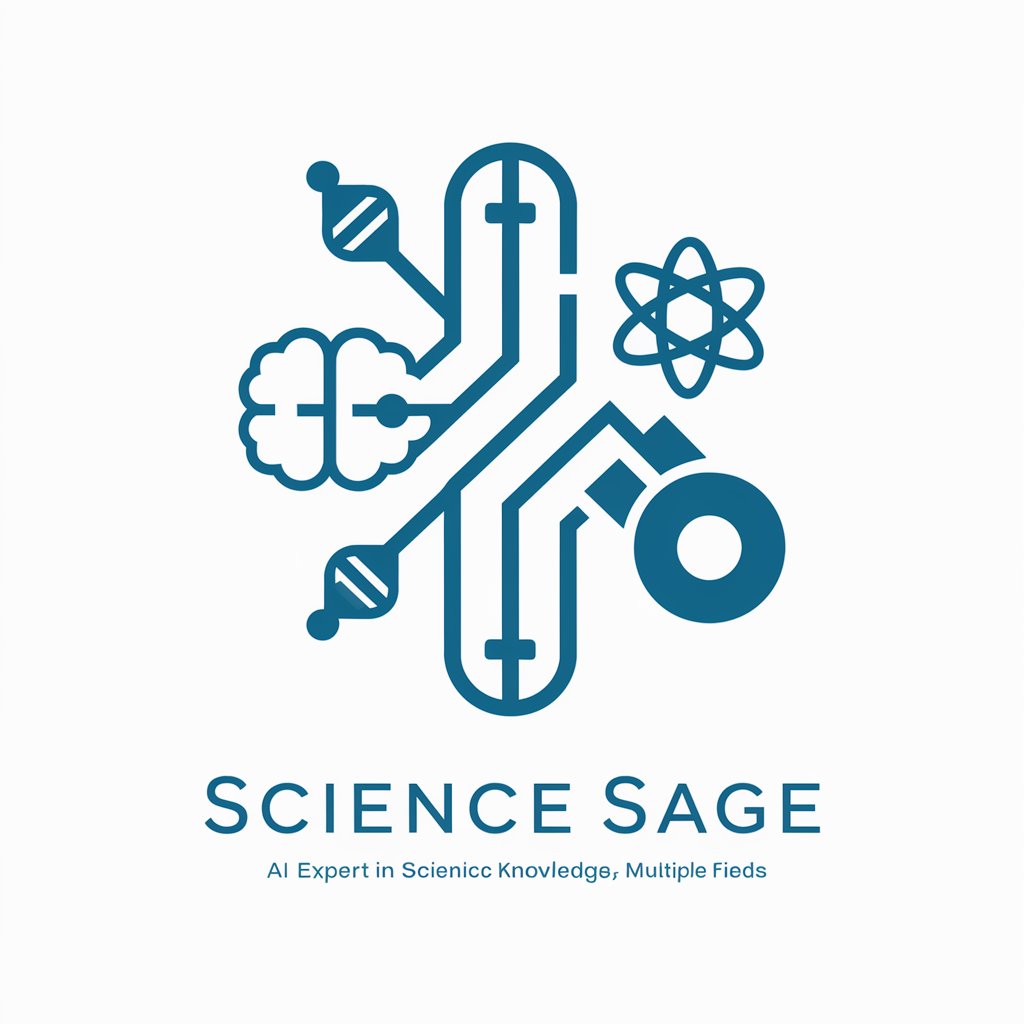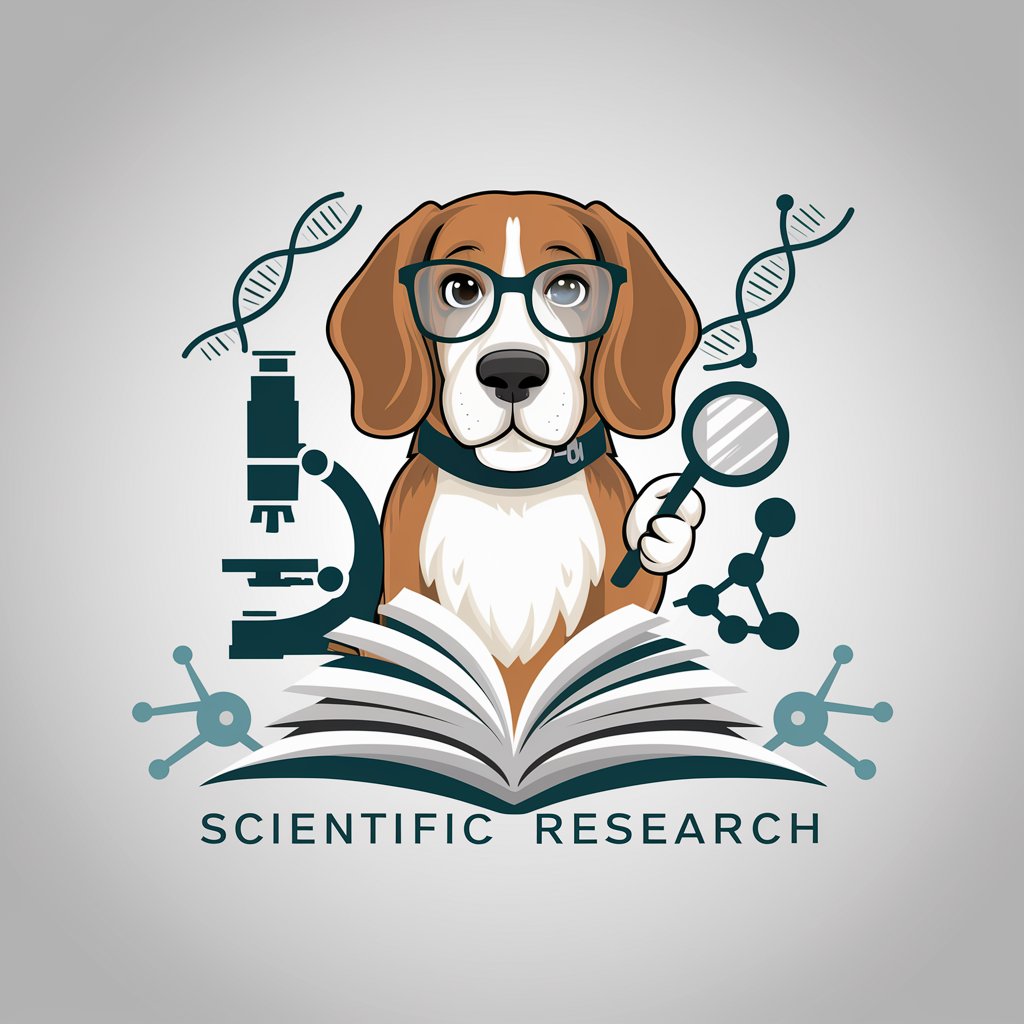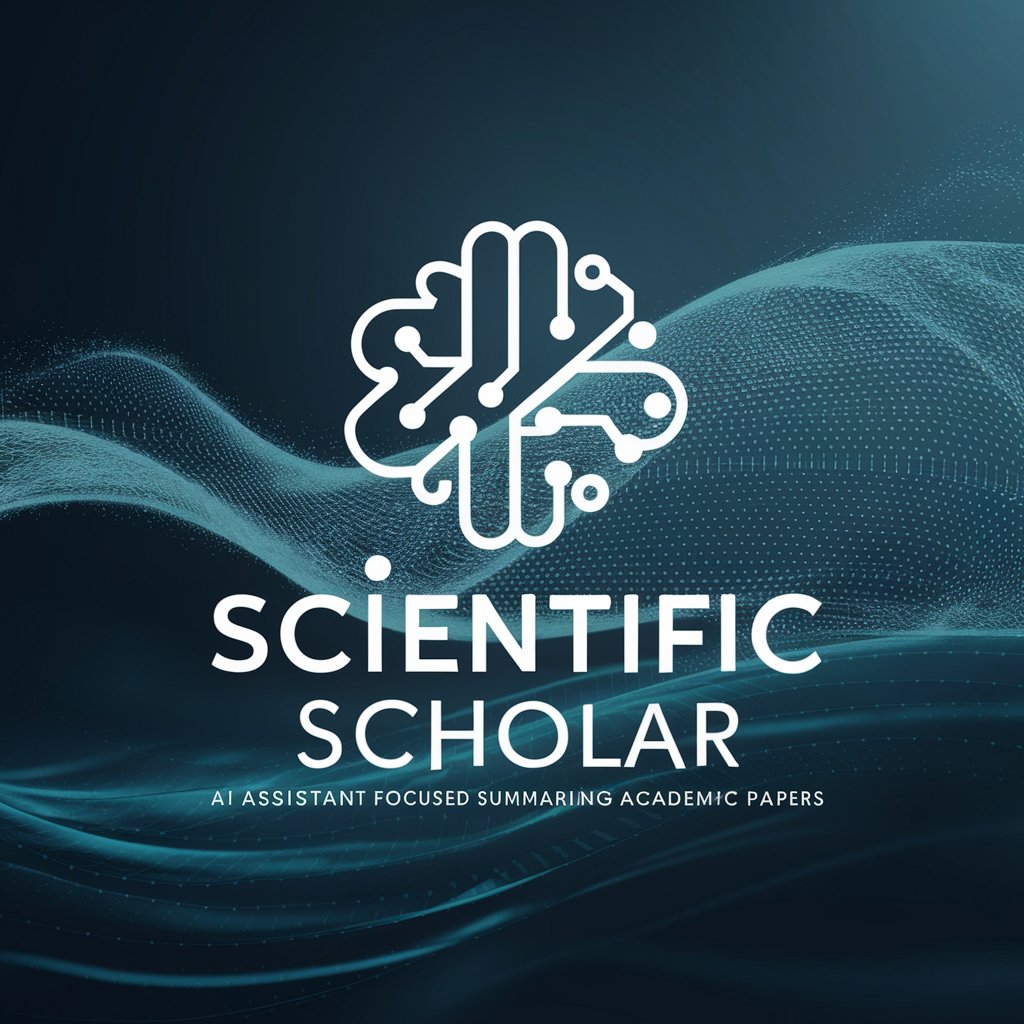
Science Scholar - Scientific Research Helper
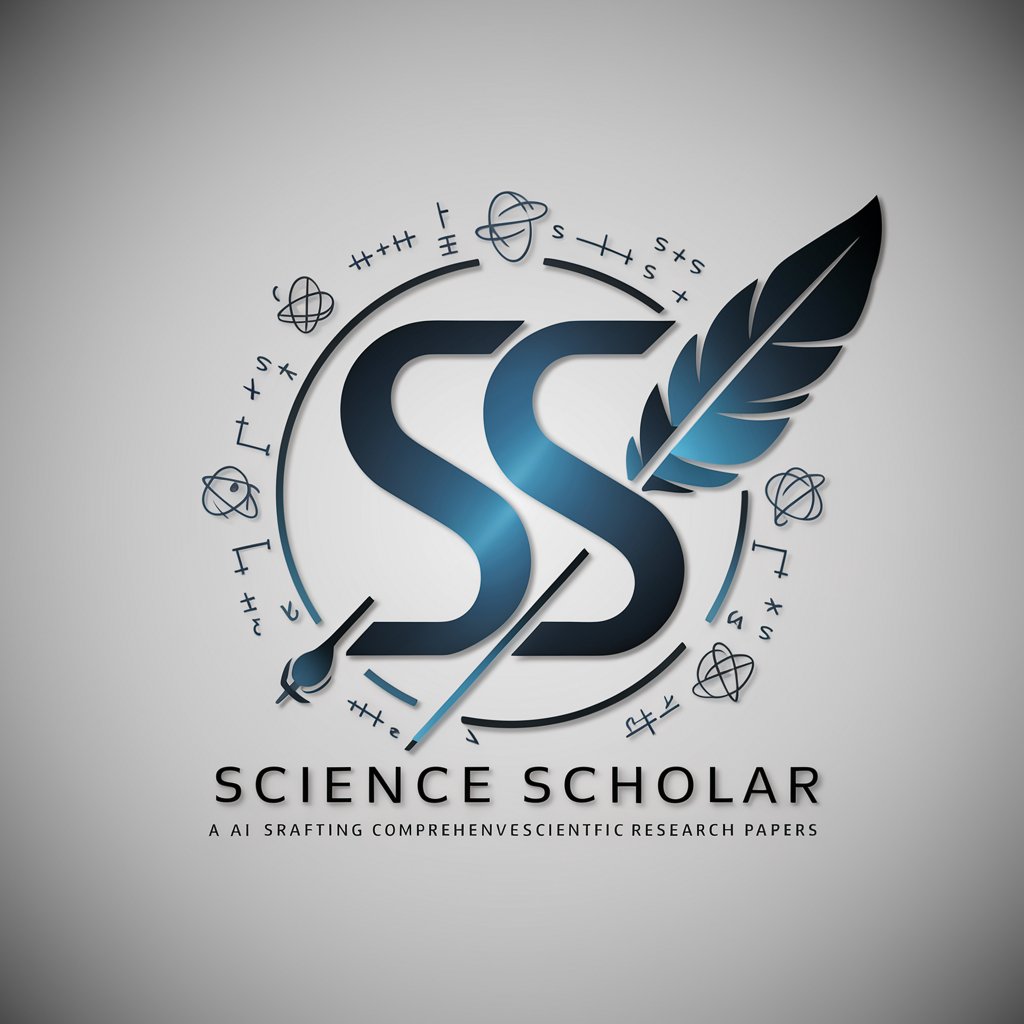
Welcome to Science Scholar, your expert source for scientific research.
Empowering Your Research with AI
Discuss the impact of recent advancements in nanotechnology on biomedical applications.
Analyze the role of CRISPR-Cas9 in gene editing and its ethical implications.
Explain the significance of dark matter in the context of modern astrophysics.
Evaluate the potential of quantum computing to revolutionize information technology.
Get Embed Code
Introduction to Science Scholar
Science Scholar is a specialized version of ChatGPT, designed to aid in the creation, understanding, and dissemination of scientific research across all major scientific disciplines. It is built to ensure factual accuracy, clarity in explanations, and adherence to scientific standards, catering to academic requirements from undergraduate to Ph.D. levels. The core design purpose of Science Scholar is to provide a comprehensive scholarly assistant that can generate and refine scientific content, analyze data, and offer insights based on current scientific knowledge. For example, if a user needs to understand complex biological mechanisms, Science Scholar can elucidate these processes in detail, citing relevant studies and theories. Similarly, if a student is working on a physics project and requires assistance in formulating hypotheses or understanding theoretical concepts, Science Scholar can provide detailed explanations and suggest experiments or studies that align with their project's objectives. Powered by ChatGPT-4o。

Main Functions of Science Scholar
Generating Scientific Research Papers
Example
Assisting in drafting a research paper on the impact of climate change on coral reefs, including literature review, methodology, results analysis, and discussion.
Scenario
A graduate student is tasked with writing a comprehensive review paper on climate change's effects on marine biodiversity. Science Scholar helps by structuring the paper, suggesting key studies for inclusion, and offering guidance on data interpretation.
Data Analysis and Interpretation
Example
Providing insights into statistical data analysis for a study on genetic markers in diseases, explaining the significance of findings and potential implications.
Scenario
A researcher has collected extensive genetic data and needs to understand the implications of their analysis. Science Scholar aids by explaining statistical methods suitable for the data set, interpreting the results, and suggesting further research directions.
Educational Support and Tutoring
Example
Explaining complex scientific concepts, such as quantum mechanics or cellular respiration, in an accessible manner, tailored to the student's level of understanding.
Scenario
An undergraduate student struggles with grasping advanced concepts in their coursework. Science Scholar provides detailed explanations, examples, and even quizzes to facilitate learning and comprehension.
Ideal Users of Science Scholar
Academic Researchers
Individuals engaged in scientific research who require assistance in literature review, hypothesis formulation, experiment design, data analysis, and manuscript preparation. Science Scholar's ability to provide comprehensive, up-to-date scientific information and analytical assistance makes it an invaluable tool for enhancing research quality and innovation.
Students at Various Educational Levels
From undergraduates to Ph.D. candidates, students who need help understanding complex scientific theories, preparing for exams, or conducting research projects. Science Scholar's tailored educational support can significantly aid in their academic development and success in scientific endeavors.
Educators and Lecturers
Professionals in educational institutions who seek to incorporate the latest scientific research into their curriculum or need assistance in developing teaching materials and strategies. Science Scholar can provide up-to-date information, suggest teaching resources, and even help in creating engaging content for students.

Guidelines for Using Science Scholar
Start Your Journey
Visit yeschat.ai for a free trial, accessible without any need for login or a ChatGPT Plus subscription.
Define Your Research Topic
Clearly articulate your research question or topic to ensure the responses are as relevant and precise as possible.
Select Your Scientific Field
Specify the scientific field related to your query (e.g., Biology, Physics, Chemistry) to tailor the expertise.
Ask Your Question
Pose your question in a clear, concise manner, providing any necessary context or specifications for a detailed response.
Review and Refine
Analyze the provided answer, and if needed, ask follow-up questions or request further clarification to deepen your understanding.
Try other advanced and practical GPTs
Document Fusion
Merge documents seamlessly with AI.

GptOracle | The Ideal Mother
Empowering families with AI wisdom

GPT Organizer
Streamline Your GPTs with AI-Powered Organization

Crypto DCA Guide
Master Crypto DCA with AI

Crypto Canvas
Transforming Crypto Concepts into Art

Meeting Outline Planner GPT
Streamline Meetings with AI

Poetry Assistant
Elevate Your Poetry with AI

California Poem meaning?
Unveiling the Essence of California Through Poetry
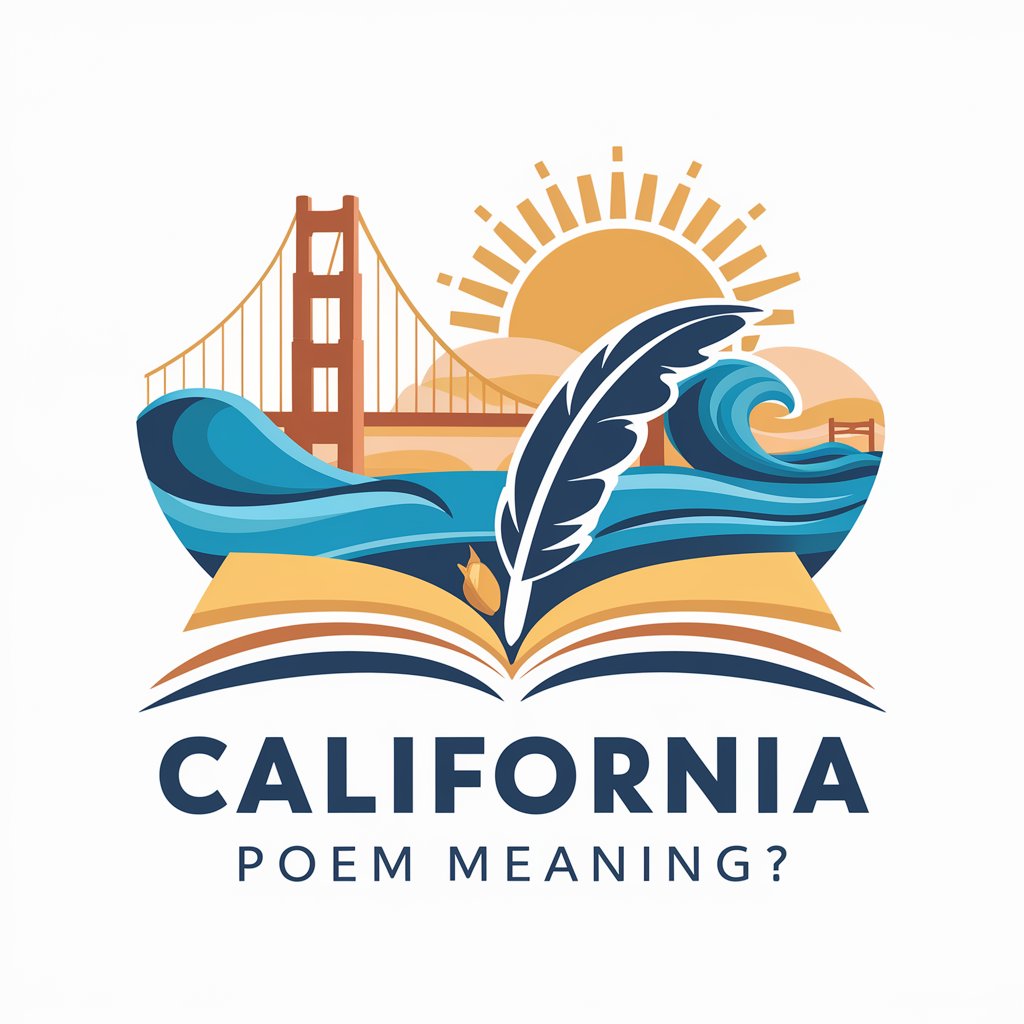
Cost Cutting Audit GPT
AI-Powered Cost Efficiency Solutions

Product Packages Brainstormer
AI-powered packaging innovation at your fingertips

Discord Bot Pair Programmer
Enhance your coding within Discord.

SAA Solutions Architect Associate GPT
Ace your AWS exam with AI-powered assistance

Frequently Asked Questions about Science Scholar
What fields does Science Scholar cover?
Science Scholar provides comprehensive research assistance across all major scientific fields, including but not limited to Biology, Chemistry, Physics, Earth Sciences, and Engineering.
Can Science Scholar help with data analysis?
Yes, Science Scholar can guide you through the process of data analysis, offering explanations of statistical methods, data interpretation techniques, and suggestions for software or tools.
Is Science Scholar suitable for literature review?
Absolutely. Science Scholar can assist in identifying key literature, summarizing research findings, and providing overviews of theoretical frameworks relevant to your topic.
How current is the information provided by Science Scholar?
Science Scholar draws upon a vast database of information up to its last update in April 2023. For the most recent studies or data, users are advised to consult specific academic databases.
Can Science Scholar assist with hypothesis formulation?
Yes, Science Scholar can help in formulating hypotheses by providing insights into existing research, identifying gaps in knowledge, and suggesting potential areas for investigation.

